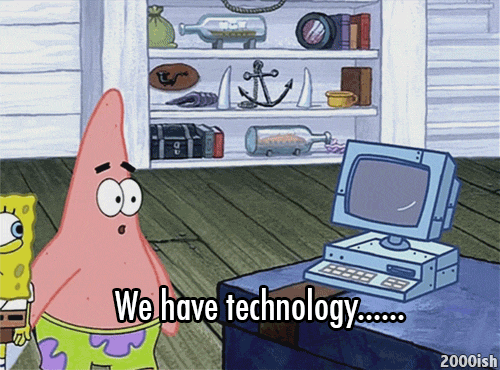There are so many ways to build a career in tech. So, where should you start? We also don’t know the answer. But we know how to help you choose the best career path for you.
If you feel clueless about the differences between tech career paths, well, here’s a list of 20 different tech roles. Let’s take a look!

1. Data scientist
As a data scientist, you will need to understand the algorithms behind data science, engineer data sets and communicate solutions that are tailor-fitted to the needs of the client. A data scientist’s role combines computer science, statistics, and mathematics. They analyze, process, and model data then interpret the results to create actionable plans for companies and other organizations. You can work with big brands, or you can pursue a freelance career if you seek freedom.
2. Business intelligence analyst
Business intelligence analysts gather the information that an organization uses to make the right decisions. They maximize the utility of data and ensure their accuracy, making it useful in decision-making. They mine data from various sources, analyze data trends, recommend solutions for a more profitable business, and determine the actions management needs to undertake to fulfil its goals and objectives.
3. Artificial intelligence engineer
A lot of organizations are embracing AI to improve efficiency, cut costs, increase profitability and become more competitive. To make this possible, companies need to have a knowledgeable AI engineer. They are IT professionals who make sure that AI and machine learning implementation does not meet with serious problems. They help make the most of AI to come up with faster and better decisions. These professionals need knowledge in software development, data science and data engineering, among other things.
4. Software developer
When we talk about jobs for tech whizzes, a software developer is one of the first things that come into mind. If you are good at programming and creating software solutions to meet the needs of an organization, you are in for a treat. The job roles include coding and testing new software, troubleshooting existing software, and collaborating with stakeholders to develop the right software.
5. Front-end developer
Front-end web development or client-side development is involved in the creation of interaction and user experience to run a website. The core elements of front-end development are JavaScript, CSS and HTML. It brings into life the concept of the designers. It also creates custom user experiences and implements a mobile-responsive site.

6. Back-end developer
So what makes the front-end of a website possible? Where is all that data stored? This is where the back-end comes in. The back end of a website consists of a server, an application, and a database. A back-end developer builds and maintains the technology that powers those components which, together, enable the user-facing side of the website to even exist in the first place.
7. Full-stack developer
This is a technical job that requires knowledge of programming servers, browsers and databases. Full-stack developers are not experts in a single skill: The job requires horizontal technology development, which is why there is a need to roam through different modules or stacks, a jack of all trades. It will allow you to be able to implement a new feature in all it needs to work properly.
8. Mobile application developer
In an age when people are always on their smartphones, there is a huge demand for mobile application developers. You will need analytical and programming skills to be successful in this career path. Essentially, most of the things that you do will be similar to a software developer’s duties. Nowadays, even small businesses utilize the power of mobile applications to propel success, providing plenty of work opportunities for mobile app developers to tap. The challenge is to create an app that is engaging, relevant and unique.
9. Video game developer
Video game developer is a good career for those who love playing video games. Game developers are people with math, computer, or creative arts skills. They spend their time programming and developing console, computer, and mobile video games.
10. Computer systems analyst
In this modern age of business, companies rely on the use of computers. Therefore, they will need an expert with the main responsibility of evaluating and improving the computer system in an organization, making sure that it is foolproof.

11. IT security specialist
Organizations are confronted with different types of cybersecurity threats, which can be a significant risk. Hackers can use confidential and sensitive information in such a way that it can be a significant danger for the business. Hence, there is a high demand for professionals who can provide a secure IT infrastructure, which can give the management peace of mind. They also help to give customers peace of mind that any information they share with the company stays safe.
12. DevOps Engineer
A DevOps engineer works with software developers, system operators and admins, IT operations staff and others to oversee and facilitate code releases or deployments on a continuous basis. Skills for Project Management, IT infrastructure, Automation, Security, Monitoring and Reporting, etc. DevOps is the glue that links your various IT functions together. Bearing this in mind, it’s just as important to focus on the ‘soft’ skills a DevOps engineer brings to the table on top of their technical knowledge.
13. Computer network architect
This profession involves designing, building and keeping data communication networks. The specific duties include the creation of plans for data communication networks, upgrading current hardware to meet the requirements of the computer network, and implementing innovative technologies that help the organization to confront the future and become more competitive. It requires analytical, leadership, interpersonal and organizational skills, among others.
14. Cloud administrator
Cloud technology provides plenty of benefits, including improvements in collaboration and accessibility. It is also a green technology. It is important for organizations to have a cloud administrator and take advantage of that person’s ability to make the most of the company’s adoption of cloud technology. The job entails making sure that the cloud platform tools are delivering the best performance without compromising security.
15. Computer hardware engineer
Where there are software engineers, there is also a computer hardware engineer. Basically, this profession involves design, development and supervision of computer hardware, including circuit boards, chips, printers, modems and keyboards. Their job is similar to that of electronics engineers, the main difference being that their concentration is computer technology. They create prototypes of new hardware and supervise manufacturing, among other things.

16. SEO specialist
.If you want to crunch numbers and analyze results, SEO consultant is an attractive job opportunity. Your primary concern is to ensure the presence of high-quality content that ranks the client on the first page of search engine sites. Increasing traffic and optimizing content are some of the main responsibilities. Aside from the textual content, you need to know how to optimize videos and photos to achieve the top spot in search engines.
17. UX designer
User experience design is all about creating products that provide a meaningful experience to customers. The main job of UX designers is to design for a better experience. It is a user-centred design that involves thorough desk and field research to determine exactly what users want.
18. Interaction designer
This isn’t as popular as the jobs mentioned above but equally promising for tech geeks looking for attractive job opportunities. It belongs under the umbrella of user experience since it has the main goal of delivering better experiences. It is the creation of interactions between products and users. The job entails the creation of engaging interfaces for more effective communication.
19. Product Manager
Product managers are responsible for guiding the success of a product and leading the cross-functional team that is responsible for improving it. It is an important organizational role — especially in technology companies — that sets the strategy, roadmap, and feature definition for a product or product line.
20. Quality Assurance Engineer
QA engineer responsibilities include designing and implementing tests, debugging and defining corrective actions. You will also review system requirements and track quality assurance metrics. This is a very important role: you will be responsible for conducting tests before product launches to ensure software runs smoothly and meets client needs while being cost-effective.

No matter what you think, people need more than just tech skills to break into tech careers. Your first job doesn’t need to be a big question mark. In the end, all of this is about you and your choices. And there is no “right way”. Only your way.

Matching You with Your Future
Landing.Jobs Team






0 Comments